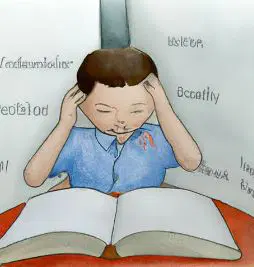In observance of the 2024 Dyslexia Day, Prof. Ifeoma Udoye, a university don, has called for early detection of dyslexia, unveiling scientifically proven methods to address this reading disorder in school children. This year’s Dyslexia Day aims to raise awareness about the alarming prevalence of this reading disorder.
During her keynote address at the event organized by the Women Foundation for Improved Living Standards in collaboration with Nwafor Orizu College’s Primary School in Anambra State, Prof. Udoye outlined crucial methods for parents and teachers to identify young children at risk of reading and learning difficulties associated with dyslexia.
Prof. Udoye emphasized the importance of monitoring children’s linguistic development, particularly their challenges with pronunciation and rhyming. She encouraged parents to observe their children’s ability to connect print with language, such as recognizing and naming individual letters.
Additionally, she highlighted the significance of understanding family history, particularly regarding genetically inherited issues related to speaking, reading, writing, or learning foreign languages that may affect children.
As the Sub-Dean of the Faculty of Arts at Chukwuemeka Odumegwu Ojukwu University, Anambra State, Udoye explained that dyslexia is not a disease but rather a learning difficulty that affects a child’s ability to identify and manipulate linguistic sounds and comprehend new words.
According to Udoye, approximately one in every five children is affected by dyslexia, with 80 to 90 percent of children diagnosed with learning disabilities identified as dyslexic. Alarmingly, many children remain undiagnosed as their challenges in school are often misattributed to low IQ, insufficient effort, or adverse environmental factors. This lack of recognition can lead to low self-esteem, anxiety, and depression.
Prof. Udoye underscored the critical nature of early detection and intervention, noting that research indicates that 70 percent of dyslexic children who receive educational support in kindergarten or first grade become proficient readers and may reveal other hidden talents.
As awareness grows surrounding dyslexia and its impacts, the need for proactive strategies becomes increasingly clear, with the hope that early identification and support can pave the way for better outcomes for affected children.

